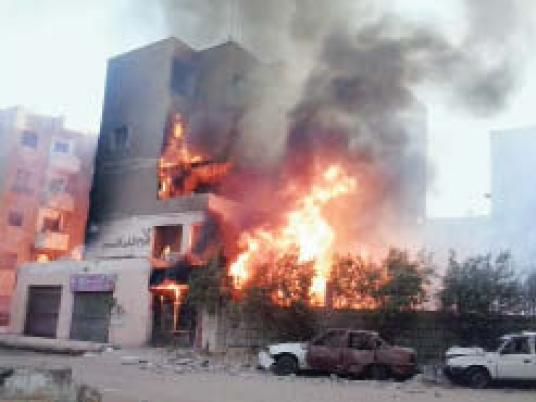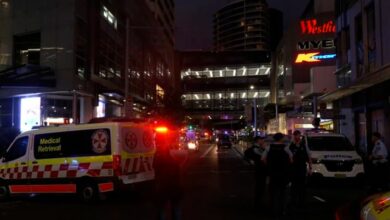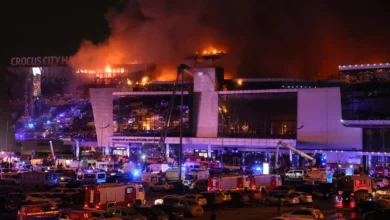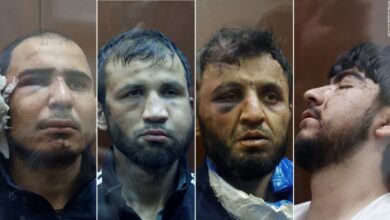
A police raid last week on a Nasr City apartment housing an alleged terrorist cell has raised concerns about the possible return of fully fledged Islamist militancy to Cairo. The Interior Ministry was quick to announce that it had captured eight members of a terrorist cell following the raid.
Yet questions loom over whether the threat is real: a tour de force by a post-revolution, defeated security apparatus attempting to regain its power — or a conspiracy to weaken the rule of President Mohamed Morsy.
The residential area in Nasr City woke up last Wednesday to an explosion as security officers raided the apartment thought to house the terrorist cell. Following a gunfight, the suspect threw a bomb at the officers, which then bounced back into the apartment, killing him and setting the building on fire, police said.
Police arrested eight suspects in total, who they said belonged to the same terrorist cell. The State Security Prosecution detained the suspects, including Egyptians, Libyans and Tunisians, for 15 days pending investigation on charges of terrorism.
Following the arrests, security forces announced they had destroyed plans the cell had in Egypt, including plans to assassinate political figures, bomb the Interior Ministry and other state buildings, and bomb St. Mark’s Coptic Orthodox Cathedral in Abbasseya, Cairo.
Meanwhile, media reports continued to focus on other security revelations of terrorist threats throughout the week, including a cell in Sinai plotting for attacks in the tourist areas south of the peninsula.
With the security apparatus revealing dangerous plots that the arrested cells allegedly had, there are fears the incident is the start of attempts to restore tight security and return to oppressive measures under the pretext of fighting terrorism.
Montasser al-Zayat, a lawyer who has been defending Islamist groups since the 1990s, says the cell was not aiming for operations inside Egypt and the security apparatus was exaggerating the internal threat. For him, the cell was, at most, involved in arms smuggling, since Egypt is a favorable point of passage between arms-rich Libya and conflict-torn Gaza and Syria. “They are turning it into something that scares Egyptian people in order to retrieve the powers that they lost on 25 January,” Zayat said. He added that authorities have always been quick to label Islamist groups as terrorist and falsify accusations against them.
Morsy has not been spared criticism following the raid either. In July, Morsy issued a presidential pardon for 600 mostly Islamist detainees, with few details available about their identities. Even though details of the case are still ambiguous, security experts are suggesting that some of those that Morsy pardoned are involved in the cell.
Some media linked some of the released militants’ activity with Sheikh Mohamed Gamal al-Kashef, a jihadi leader who was released from long-term detention after the revolution.
“The cases should have been studied before releasing them in this random manner. The president was hasty in giving the mass pardons, and the country’s security will suffer greatly because of that,” says security expert and former military intelligence officer Sameh Seif al-Yazal.
Morsy is also blamed for failing to curb the activities of criminal cells. Since 2011, operations targeting gas pipelines supplying neighboring Israel and security checkpoints conducted by armed men believed to be jihadis in Sinai have given the impression that authorities are unable to impose security in the peninsula.
Following an attack on a checkpoint near the Gaza border town of Rafah in August that resulted in the death of 16 security officers, the military, under Morsy’s instruction, launched an operation aiming to purge Sinai of criminals. Yazal, however, says the campaign has been unsuccessful, and its failure allowed the terrorist factions to spread in other governorates.
“Those groups now originate from the groups in Sinai that the regime has failed in destroying, so they spread in other governorates,” he adds.
With contradictions between Morsy’s pardon of Islamist detainees and the security apparatus’s crackdown on them, political commentator Abdallah al-Sennawy says the incident indicates there are disagreements between the Islamist rulers and the security apparatus, which has been trained to fight Islamic forces as extremist threats.
Meanwhile, Sennawy has a different political explanation. He speculates that the operation could be a part of the Brotherhood’s diplomatic efforts to maintain good relations with the US.
Sennawy says the Brotherhood needed to offer a token of goodwill to the American administration, which came under attack for showing its support for the Brotherhood, especially following a string of attacks on its embassies in Cairo, Tripoli and other Middle Eastern capitals last month.
An Al-Masry Al-Youm report shows that intelligence about the Nasr City cell was offered by the FBI to Egypt to mark the high level of cooperation between the two countries.
This article appears in this week's Egypt Independent print edition.




